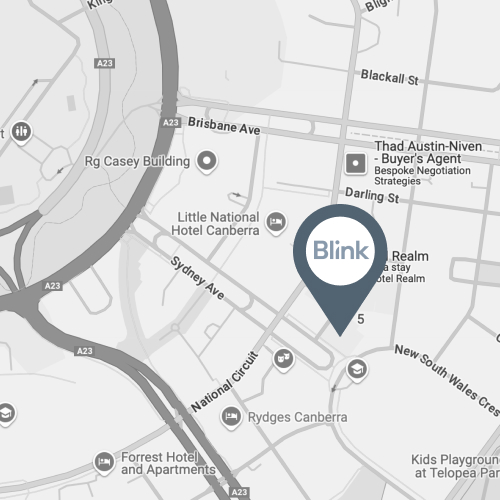
Who should not have laser eye surgery?
Laser eye surgery has helped many people reduce their need for glasses or contact lenses. But it’s not suitable for everyone.
At Blink Vision Clinic in Canberra, patient safety and clinical judgment come first. That means we only recommend laser eye surgery when we believe it’s the right option for you. There are some cases where laser eye surgery is not appropriate.
Here’s what you need to know.
Laser eye surgery isn’t for everyone
Laser eye surgery works by reshaping the clear front part of the eye, called the cornea. This allows light to focus more accurately on the retina.
It can treat common refractive errors like:
- Short-sightedness (myopia)
- Long-sightedness (hyperopia)
- Astigmatism
- Presbyopia (age-related reading vision problems – in some cases)
But there are certain eye and health conditions that may mean laser surgery is not a suitable or safe option.
When laser surgery might not be recommended:
1. Unstable prescription
Your vision needs to be stable before surgery. If your glasses or contact lens prescription has changed within the last 12 months, we usually recommend waiting.
We’ll check your history carefully before proceeding.
2. Thin or irregular corneas
Laser surgery reshapes the cornea, so the thickness and shape of your cornea are critical. If your cornea is too thin or has an irregular shape (a condition known as keratoconus or similar), it may not be safe to proceed.
We use advanced scans to assess this.
3. Certain eye conditions
Laser eye surgery may not be suitable if you have:
- Advanced dry eye disease
- Corneal scars or infections
- Cataracts
- Glaucoma
- Severe amblyopia (lazy eye)
- Retinal disease.
These conditions may affect the outcome of surgery, or in some cases, surgery could make them worse.
4. Age-related changes
People under 18 are not suitable for laser eye surgery, as their eyes are still changing. For people over 45, presbyopia (age-related reading vision changes) becomes a factor. Special procedures like PresbyMAX may help, but not all are eligible.
We assess this during your consultation.
5. Pregnancy or breastfeeding
Hormonal changes during pregnancy and breastfeeding can affect your vision and healing response. We recommend waiting at least 3 months after breastfeeding has stopped before considering surgery.
6. Autoimmune or systemic conditions
Certain medical conditions can affect healing or increase risk. These may include:
- Lupus
- Rheumatoid arthritis
- Uncontrolled diabetes
- Immunosuppression.
Each case is assessed individually. In some cases, surgery may still be possible with specialist input.
7. Unrealistic expectations
Laser eye surgery can significantly reduce your need for glasses but it’s important to have realistic expectations. It may not give perfect vision, and some people may still need glasses for some tasks.
If we don’t think you’ll be satisfied with the likely outcome, we’ll be honest about that too.
How do we decide if it’s safe?
At Blink Vision Clinic, we conduct a thorough pre-operative assessment, including:
- Corneal mapping
- Prescription stability check
- Eye health evaluation
- Detailed discussion about your lifestyle and vision goals.
Only after this can we determine whether laser surgery is clinically appropriate.
If it isn’t, we’ll explain why and discuss alternative options if available.
What if I’m not suitable?
Being told you’re not suitable for laser eye surgery can be disappointing. But it’s not the end of the road.
Some people may be better suited to lens-based procedures, such as lens replacement surgery. Others may need to wait until their vision stabilises. We’ll guide you through what’s best for your eyes.
What’s the next step?
If you’re curious about whether you might be a candidate for laser eye surgery, take our free online self-test. It’s a quick, simple way to get started.
It won’t replace a full consultation, but it can help you decide whether to take the next step.
Find out if you are suitable for vision correction
Not everyone is eligible for vision correction surgery.
Find out if you could benefit from this life changing surgery by taking the quick self-suitability quiz below:


